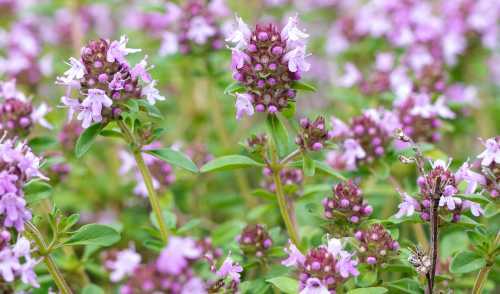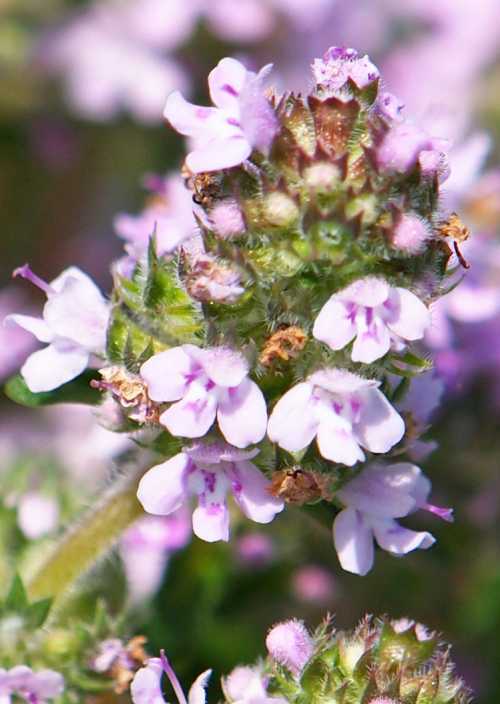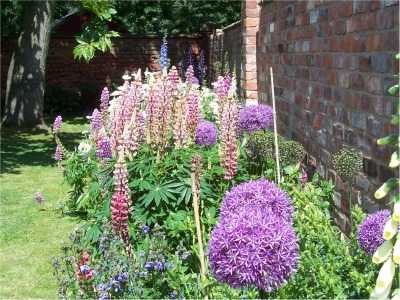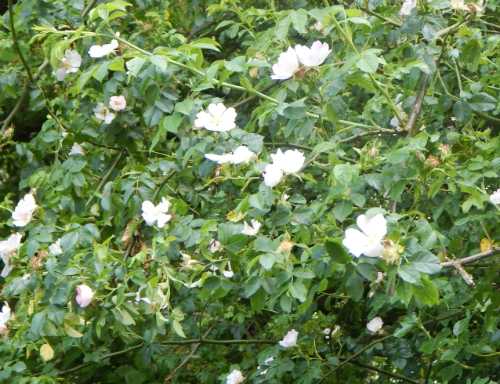Do Bees Like Thyme?
Thyme is a woody, herbaceous perennial herb, and like many herbs, it's popular with bees and other pollinators.
Not only do thyme flowers provide nectar and pollen, research shows that some Thymus species may help protect bees against diseases.
Read on to learn more!
Why Bees Like Thyme

Thyme is an aromatic, evergreen herb that provides nectar and pollen for bees during the summer, when populations of bees are at their peak, and there are more adult bees as well as their young to feed.
Thyme is an easy to grow, is fairly free of pests, and will attract bees and butterflies. You can't go wrong with 'Common Thyme' - Thymus vulgaris.
Plant it in your garden border or rockery (or in pots) to provide pollen and nectar for a variety of bee species. Choose a well-drained, sunny spot, preferably with some shelter. Plants can grow to about half a meter in height, but check the variety.
How Else Do Bees Benefit From Thyme Plants?
It may surprise some readers that along with fulfilling general food requirements, nectar and pollen not only provide vital nutrients such as carbohydrate (for energy) and protein, they may also contain beneficial chemicals that provide protection against diseases and pathogens1.
For example, it has been found that honey bees forage and store (in the form of honey) highly antibiotic plant products1. In fact, it has been found that nectar, pollen and resin (propolis) are used as a form of self-medication, both at individual bee and colony level.
Plant nectar is particularly full of secondary metabolites and the self-medication potential of honey for bees (such as inhibiting pathogen growth) has been shown in multiple studies1. (As an aside, this is one of the reasons why it is essential beekeepers leave plenty of the honey bee's winter stores (honey) in the hive, so that the colony is not weakened unduly).
Additionally, it has also been found that certain compounds within floral nectar (e.g. anabasine, nicotine and thymol) can also reduce parasite loads in bumble bees2.
How Thyme May Help Bees Stay Healthy
The flowers of thyme may be small, but they may offer additional important health benefits to bees in the form of terpenes.

Terpenes are natural chemical compounds that are especially found in aromatic plants, such as herbs, and research has shown that terpenes gathered mainly in pollen from common thyme (Thymus vulgaris) may offer beneficial antibiotic activity, by reducing the growth of bacteria associated with bee diseases.
In particular, one study1 found that Thymus vulgaris offers 6 terpenes. According to the study, two of the terpenes (carvacrol and thymol) were especially effective at reducing growth of bacteria even at low concentrations, (including 2 out of 5 tested bacteria that are associated with European foulbrood).
How To Grow Thyme For Bees
Thyme can be grown from seed, cuttings or by dividing mature plants.
Select a well-drained spot in the garden in full sun. Alkaline to neutral soils are preferred.

References
1. Wiese, N., Fischer, J., Heidler, J. et al. The terpenes of leaves, pollen, and nectar of thyme (Thymus vulgaris) inhibit growth of bee disease-associated microbes. Sci Rep 8, 14634 (2018). https://doi.org/10.1038/s41598-018-32849-6
2. Richardson, L. L. et al. Secondary metabolites in floral nectar reduce parasite infections in bumblebees. Proc. R. Soc. B282, 20142471 (2015).
If you found this page helpful or interesting, I'd really be grateful if you would share it with others - if not this page, perhaps another, such as Gardening For Bees.
Thank you so much :) .


